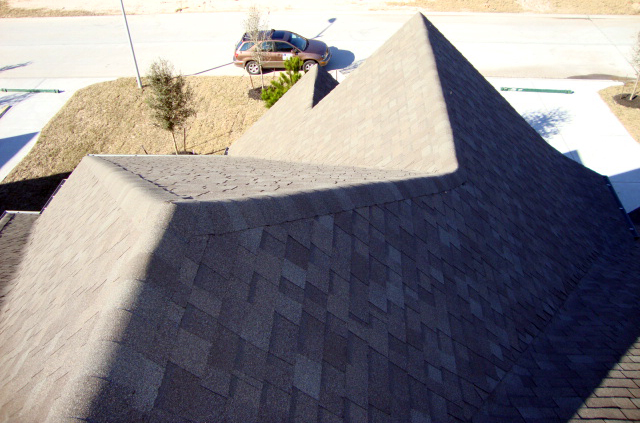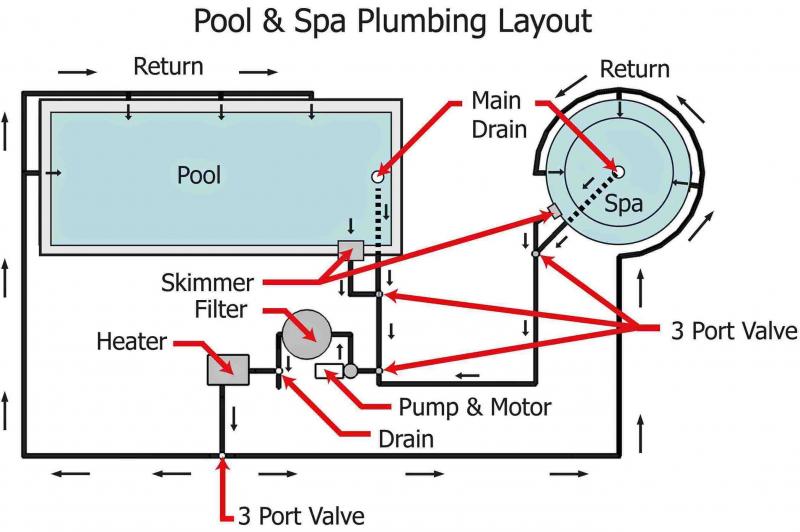What's Inspected During A Home Inspection
CELL 713-829-7732
The 'Home Inspection Process' Explained
REI-Specialist utilizes a rigorous Process on EVERY home I inspect.
This ensures that each of the following areas are thoroughly investigated:
For the actual DETAILED VERSION of the process, click on the red link below:
Home 'Structural' Systems:.jpg)
.jpg)
- Foundation
- Grading and Drainage
- Roof Covering
- Roof Structure & Attic
- Walls (Interior & Exterior)
- Ceilings & Floors
- Stairways
- Windows & Doors
- Fireplace & Chimneys
- Attached Porches & Decks
Real Estate Inspection Specialist utilitizes: .jpg)
.jpg)
-Laser Level verification tools for foundation, floors and walls
-Moisture Meter tools for wall, ceiling and wood testing
-'INFRARED' Thermal Imaging Camera (optional) for detection of:
(Moisture Intrusion, Missing Insulation, Air Infiltration, Ductwork Leaks)
**NOTE: The U.S. Department of Energy now recommends that an INFRARED Thermal Imaging Scan be done before purchasing a Home, even on New Homes.
**Inspection Equipment by (Flir, Technidea, Ryobi, Zircon, Cen-Tech and Swanson)
When you are looking for a Home Inspector, ask him the following?:
-Do you physically 'get up on' the roof, to check shingles, flashings, chimney etc..?
-Do you physically go in the attic, NOT JUST the decked areas, but as much as possible?
-Do you offer INFRARED Thermal Imaging Services? -OR- 'only' Visual Inspections...
Well, speaking of 'Roof Walking' guess whose SUV that is way down there... MINE...
(Photo taken from the top of a 2-story 3800 sq. ft. house in Atascocita)

Home 'Electrical' Systems:
- Service Entrance and Panels (breaker box)
- Branch Circuits (household electrical systems) (receptacles, switches, fixtures, etc...)
- GFCI (Ground Fault) Receptacles ('anti-shock' safety protection)
- AFCI (Arc-Fault) Breakers ('anti-fire' safety protection)
- 'Centrally Wired' Smoke Alarms (at all required locations)
.jpg)
 (complete diagram) (small).jpg)
Real Estate Specialist performs:
-GFCI (Ground Fault Circuit Interrupter) testing (at every GFCI receptacle)
-AFCI (ARC Fault Circuit Interrupter) testing (at every AFCI breaker on new homes)
**Electrical Test Equipment and Meters by (Fluke, GE and Greenlee)
When you are looking for a Home Inspector, ask him the following?:
-Do you remove the 'dead front' off the Breaker Box and iedntify an average of 2-5 issues
the 'so-called' Electrician messed up? (Even on brand new 'very' expensive homes)
Home Heating, Air Conditioning, and Ventilation:
- Heating Equipment (Gas, Heat Pump, or Electric)
- Cooling Equipment (Conventional or Heat Pump)
- Vents and Duct System
- Supply and Return Registers
(Air Conditioning Equipment OPERATING EFFICIENCY TEST)
.jpg)
.jpg)
I am 'your' Heating & A/C EXPERT! (with advanced HVAC training programs)
Real Estate Inspection Specialist (HVAC Test Procedures):
-HVAC Cooling Delta-T Testing and as necessary 'Duct Probe Testing' to measure
'exact temperature differentials' to determine precise equipment performance.
-I physically 'remove' the side of the Gas Furnace 'while in operation' to
visually inspect the inside, flame condition and 'draft induced' motor.
(ask how many other inspectors do 'that' !!)
**HVAC Analysis Equipment by (Mastercool, Inficon, Craftsman)
When you are looking for a Home Inspector, ask him the following?:
-Do you take the side off the gas furnace 'while in operation' to check flame color,
operation and overall condition etc..?
-Do you (even know how) to take Cooling System 'Delta-T' readings across the
Evaporator Coil in the attic?
Home 'Plumbing' System: .jpg)
.jpg)
- Water Service and Supply System
- Fixtures (faucets)
- Drains, Wastes, and Vents
- Water Heaters
- Hydro-Massage Therapy Equip. (Whirlpool Tubs)
Real Estate Inspection Specialist performs:
-Full test of 'every' faucet, sink, tub, shower, commode and drain.
-Shower pan 'leak test'.
-Full Operation 20-minute test of Whirlpool Tub Equipment.
Home 'Appliances' (built-in):
- Ranges, Ovens, Cook Tops, Installed Microwaves
- Dishwasher, Disposal, Trash Compactor, Exhaust Vent Hoods
- Bathroom Heaters, Exhaust Fans, Dryer Vents
NOTE: Outdoor Cooking Equipment inspected at NO Additional Cost
.jpg)
Real Estate Inspection Specialist performs:
-Extensive 'Full Operation' tests of each and every Kitchen Appliance.
Optional Inspections:
- Infrared Thermal Imaging (Water Intrusion and Insulation)
- Exterior Sprinkler Systems
- Pools and Spas
- Termite (WDI) Inspections
.jpg)

 (9k).gif)
![]()
The 'Detailed List' of Home Inspection Items
WELL, believe it or not, 'everything you saw above' is 'ONLY A SUMMARY' of the Home Inspection Process. YES, Only a SUMMARY.
For the actual DETAILED VERSION of the process, click on the red link below:
(Go through the document and look at either 'all of it', or specifically the sections that are 'of the greatest interest to you'.)
'Detailed Version' of The Home Inspection Process: (Click Link)
Please remember what I have said on previous pages about MY Meticulous Inspection Process.
(One can wonder, "How many inspectors do all this??")
-WELL, I can't comment about the other guys, but I CAN PROMISE YOU THAT 'I DO'.
-That is why 'my inspections' take more time than the other guy's 'rush jobs'.
-NOW, you will find 'this' even HARDER TO BELIEVE, BUT my actual Inspection Process
is even MORE DETAILED than what is in this document.
(Believe me, 'My Inspections' are a Lot of HARD WORK)
Trust me, YOU WILL get your money's worth FROM ME.
AND, as I mentioned previously, a 'very good chance'
that I can actually 'SAVE' YOU MONEY!!
CALL ME, and ask how!!!
CELL: 713-829-7732
Rodney Sims
Miscellaneous Home Tips
10 Rental Tools for Your DIY Projects
If you don't own the right tools for tackling a remodeling or maintenance project, you have the option of renting them or buying them outright. The decision is usually based on how often the tool will be used and its cost. If you need something like a drill, it makes more sense to buy one because it is a good basic tool that will be used over and over. If the project is a one-time occurrence, such as installing large porcelain tiles, you may want to rent a large tile saw instead of buying one. Here are some other projects for when rental tools can help make the job a success.
Interior Projects
Refinishing wood floors. While a solid wood floor can last for many years, the floor's finish will wear out and require refinishing. A drum sander is the best tool for removing the old finish. If you have never used one, ask the rental agent to show you how it works. Before you start, make sure there are no nail heads protruding above the surface of the floor. Also, keep in mind that drum sanders are bulky tools that cannot remove the floor's finish close to the wall or in tight spaces, such as closets. For those areas, you will need a smaller, handheld edge sander. You’ll also need sandpaper, purchased separately, for both tools.
Carpet cleaning. For most jobs, you can rent a light-duty carpet cleaner. But for tough jobs, there are commercial-grade carpet extractors available. Both require special cleaning solutions, so be sure to ask about that at the rental outlet. To speed up the drying process, rent a carpet blower fan at the same time.
Painting projects. Painting rooms with high ceilings usually means spending a lot of time climbing up and down ladders. While roller extensions can help, another option is to rent a scaffold for interior work. You can adjust the height of the scaffold to your needs. Some are narrow enough to easily roll through a 30-inch door opening. If the project calls for removing old wallpaper, rent a professional-grade wallpaper steamer. They are messy to use, but if you prepare for the dripping water, they provide the quickest way to strip a wall of old paper.
Unclogging drainpipes. For stoppages that you would usually call a drain cleaning service for, such as one caused by tree roots in the main drain line, consider an auto-feed drain snake, which automatically advances and retrieves the cable. It's much easier to use than older manual tools. Many types have enclosed drums that cut down on the mess, but cleaning out a drainpipe is dirty work, so protect the surrounding area. Place the tool as close as possible to the opening, and wear heavy work gloves when operating the machine.
Exterior Projects
Digging post holes. There are inexpensive handheld clamshell post-hole diggers available for purchase, but think of all the holes you will need to fence in your yard. Power augers make the job go much faster, plus they’re easier on your back. They are available in one- and two-person models. The auger bits come in a variety of sizes, so you can find one to dig the right diameter holes you need. When operating the auger, periodically stop the machine and lift it out of the hole to clear the hole of dirt.
Also, before starting any work, be sure to call 811, which connects you to your local "Call Before You Dig" Program. When you make the call, a specialist will come to your home to mark the locations of underground utility lines so that you avoid running into one while digging.
Cutting masonry. Whether you need to saw through a concrete slab or cut concrete block, brick or other masonry material to size, use a gas-powered concrete saw. Discuss the project with the rental agent to make sure you get the right blade. To bust up an old patio, use a demolition hammer or the more powerful breaker hammer. Be sure to wear safety shoes and eye and ear protection when operating cutting equipment.
Pouring concrete. You can mix concrete by hand, but using a barrel concrete mixer is faster and usually provides better results. Many mixers work on electricity and are attached to a moveable cart. If you're using bagged concrete mix, be sure to follow the manufacturer's directions for mixing and adding water. QUIKRETE®, a manufacturer of concrete products, suggests adding half of the required water first, followed by the concrete mix. Let the mixer work for a minute or two and then add the rest of the water as needed. Mixing usually takes about five minutes total.
Gardening and Landscaping Projects
Preparing soil for a garden. A gas-powered tiller, sometimes called a rototiller, makes short work of breaking up soil for planting. Rear-tine tillers usually provide the most tilling power and are good choices for soil that has never been tilled, as opposed to mid-tine and front-tine models. Those with counter-rotating tines do a good job on heavy clay soils. If the garden has already been tilled and you want to work compost or some other soil amendment into the garden, a lighter-weight front- or mid-tine model will do the job.
Removing trees. Whether you want to cut down a tree or cut up a tree that is already on the ground, a chainsaw is the tool to use. If you have never used one, go over safety basics and techniques with someone who has experience with the tool before going to work. Safety is the prime concern when using a chainsaw. Wear steel-toe shoes, a chainsaw helmet with a face shield, ear protection, and special chainsaw chaps.
Other Projects
Moving. You can rent all types of hand trucks and dollies for moving furniture and appliances around the house. You can also rent trailers for getting building materials or other heavy loads home. If you plan on renting a trailer, you will need to make sure that the tow vehicle has the capacity to tow the load, as well as a proper lighting hookup so that the trailer lights will work. Be sure that the ball and hitch assembly on your tow vehicle matches the coupler on the trailer.
Whether you decide to rent tools or buy them, it’s important to use the right tool for the job because it will help provide the best results.
 (GOOD for Internet).JPG)
